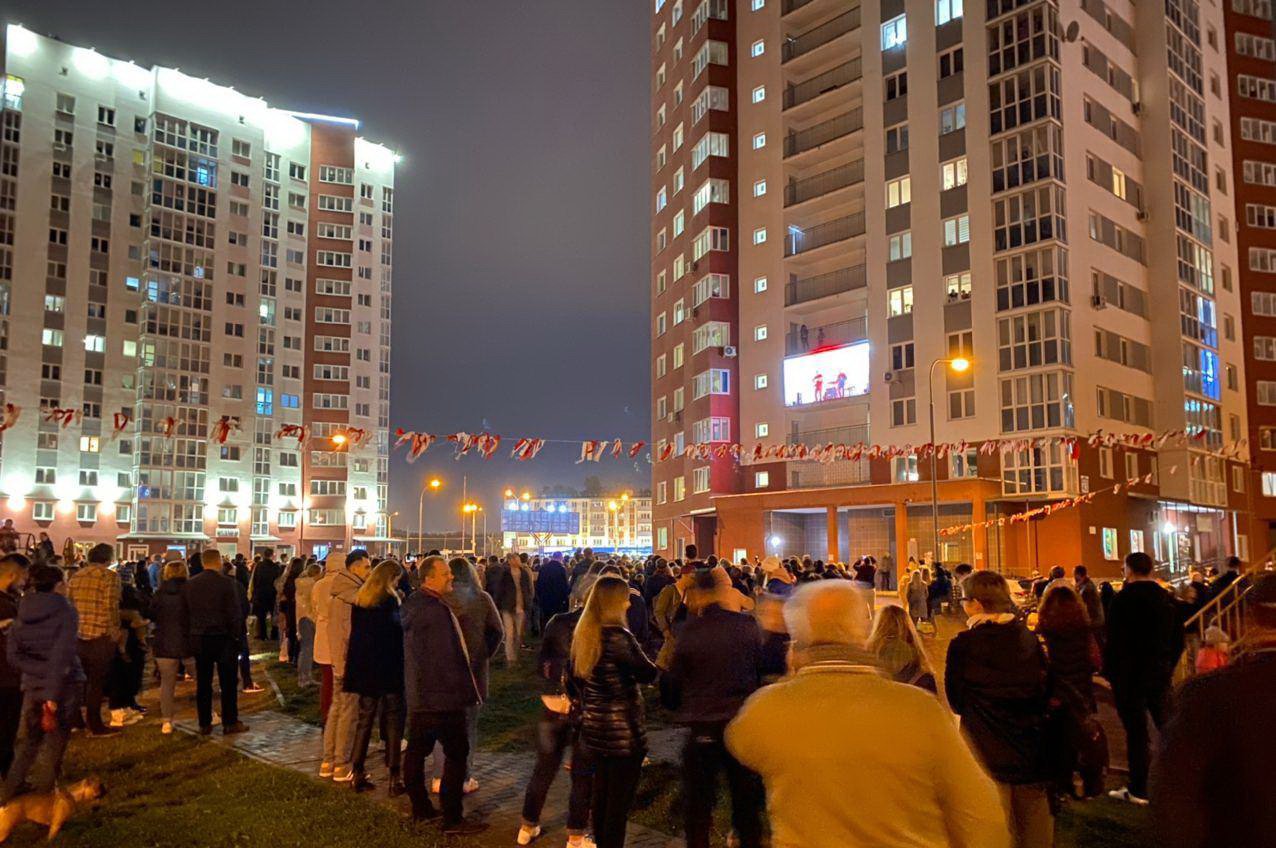"There Is a New Trend": The Leader of the "Partisans" Spoke About the Approach of the Moment of Truth in Belarus
63- 26.01.2021, 10:10
- 120,560
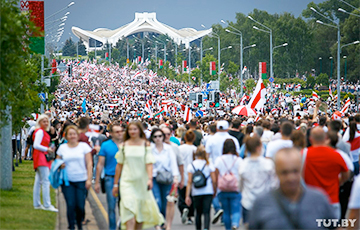
It will be a completely different protest.
Protests have been going on in Belarus for six months. The human rights center Viasna, unregistered in the country, reports that more than 26 thousand citizens have been detained. Against this background, a new phenomenon arose in Belarusian society: people began to unite in courtyards and districts and hold joint actions.
The newspaper Belarusy i Rynok considers it important to document this phenomenon in Belarusian society. How do the participants themselves see it? How are social ties built between them? The leader of one of the "partisan" courts in Minsk told the journalists about this.
The conversation in the telegram chat was organized by the "yard" press service.
- When the security forces began to violently disperse the general national marches, people began to gather in their yards. They did not know each other yet, but they went out to meet like-minded people and exchange views on the situation in the country. We had tea parties, concerts, evenings of folk music, and dancing. Then, suddenly, the authorities did not like this either. They put our area on the "dysfunctional" list. The police began to actively patrol the neighborhoods, "tsikhary" appeared, total video surveillance and monitoring of all telegram chats began, from public courtyards' to school parents'. Beads arrived with AMAP officers; they caught musicians and people peacefully munching gingerbread in their own yard.
In general, it became dangerous to conduct anything openly. But people were outraged by the violence in the country. Many felt trampled and humiliated. This whole situation is outrageous. People do not want to close their eyes to what is happening, whatever the pressure is. Therefore, the protests did not disappear but became partisan.
Now we regularly gather and line up with flags in a chain of solidarity along the roads. We hold courtyard protest marches, publish and distribute our own newspaper and leaflets, decorate the area with white and red ribbons and flags, and conduct flash mobs. I have never seen such solidarity among neighbors before. I didn't know who lives with me at the same entrance. I didn't even know who I lived with on the same floor. And now we are doing one common thing together.
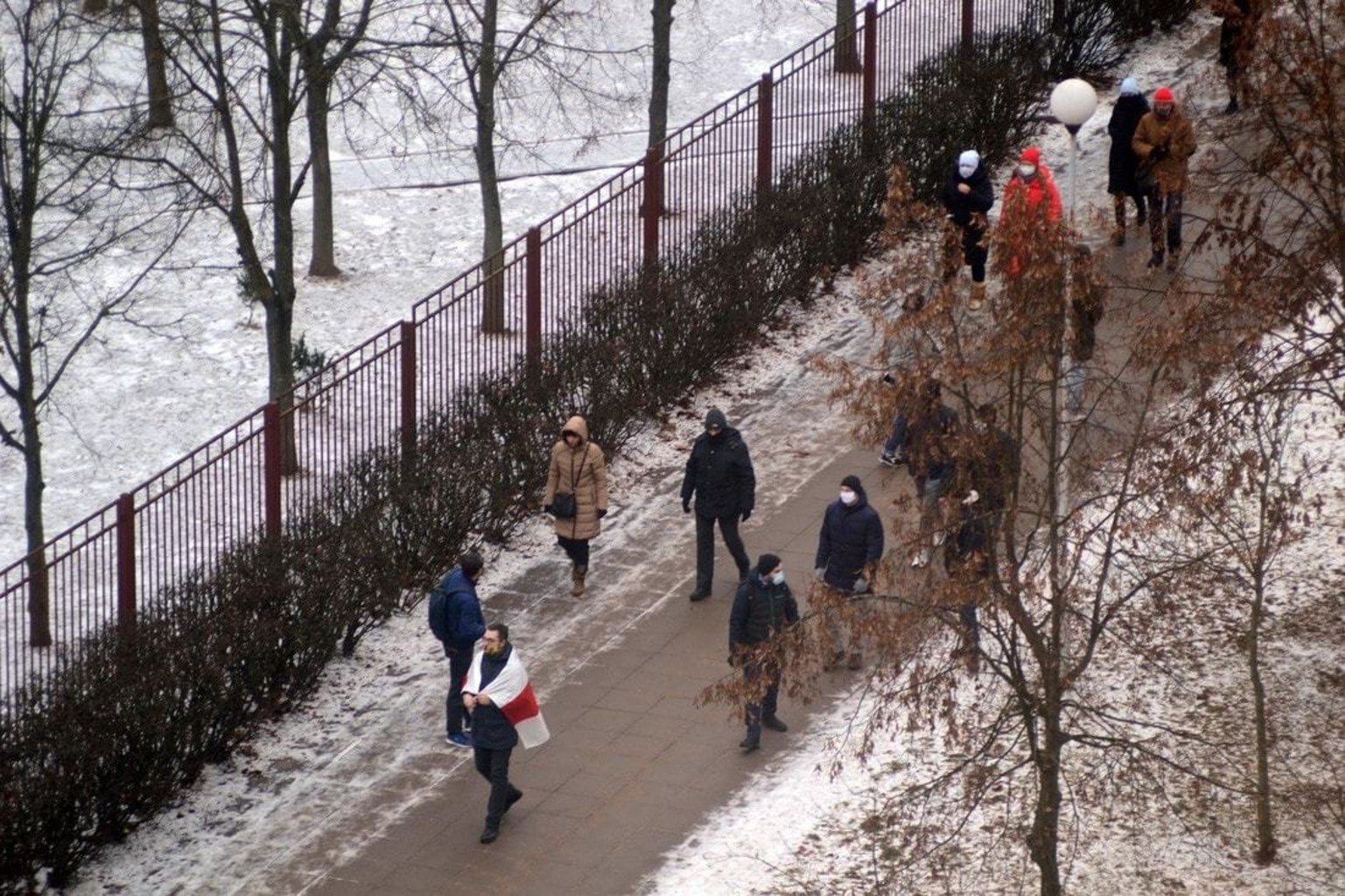
About leaders, patrols, and secret chats
- Leaders appear in the courtyards. Nobody appoints them. For example, a person has a vision or idea. He suggests it in a meeting or a chat. People pick up. And so gradually a person becomes a leader. In fact, there are many leaders: in our joint courtyard group, "interest circles" with their own activists have already formed. They do different things: write texts and publish a newspaper, prepare leaflets, decorate the area with symbols, organize flash mobs, closed gatherings, meetings, make photographs and videos for Telegram channels. Even inside the movement, you cannot know about all the activities in the area. You see their results already when you walk down the street or from photos in chat rooms.
Courtyard marches and chains became a connecting link for everyone. Someone is ready to go out every day, someone, because of work, only participates three times a week. And some do not come out at all: for example, because of the risk of deportation or because there is no one to leave a child with. The person stays home but contributes: draws and prints flyers, cuts ribbons. Other guys are taking this material and distributing it. The most active neighbors have time to participate in events in other areas.
Each district has its own secret chat, even more than one. There, ideas are discussed, votes are held, warnings about suspicious activity on the ground are sent. You can get there only after verification. Each district has its own method for this. In ours - only through personal meetings and recommendations. We invite a person to a conditional "tea," "old people" come there to talk. People recognize the newcomer as their neighbor, or they find common acquaintances. You can also get through the recommendation of those who have been in the chat for a long time. I know that in other areas, they demand that a person take a picture with a passport in front of his window. After verification, this information is removed. Or, first, a person is invited to an "intermediate" chat. He participates in activities; they look closely at him and only then invite him to secret groups.
We would like to involve the "couch troops" in our activities, but there are risks. A balance must be struck between the threshold of entry and the safety of the participants. Everyone should define their civic position: you either lie on the couch and comment in chats, or participate, or generally are on the other side.
After a series of raids on yard marches, we realized that we needed our own patrol. Otherwise, it is impossible; otherwise, we will lose people. And if earlier we had two or three people on patrol, now it is a whole network of "points." The sentinels "cleanse" the entire perimeter before the start of the march, and in case of danger, they immediately warn the convoy by radio. The march manages to disperse even before the beads with the security forces arrive. They still leave the police department, but here everyone already knows about it. First of all, we put the guys on watch who have already been detained several times and cannot be detained again.
The marches are fast and mobile. There is no longer such a smudge as a couple of months ago: it was set for one o'clock in the afternoon, and people gathered at two. Now everyone comes exactly at the appointed time. Collection points and routes are constantly changing: today we are here, tomorrow we are there. Only from the outside, it seems that people are aimlessly wandering around the yards, shouting chants and waving flags. In fact, the route is carefully built, taking into account the peculiarities of the terrain: so that vans and buses cannot drive up to the column and people have the opportunity to disperse and disappear quickly.
If earlier we gathered in courtyards and our own area, then a new trend is the unification of several areas on the march. They come to us under their protection. Then our sentinels take over the baton. A stable and trusting relationship has already been established between the district leaders. They tell us about their activities, and we invite them to ours.
Of course, we have no military experience. After all, we have doctors, teachers, students, IT specialists, and entrepreneurs on the marches. But people have intelligence and an idea of how all this should work. And it really works. There are no arrests on such well-planned marches.
How they track us down, and how we track them down
- We are gradually gaining experience in underground work. Soon the police will have something to learn from us because their disguise, frankly speaking, is weak. They sometimes give out such things...
When we didn't have any sentinels yet, on one of the marches, there was "hapun." The people were taken away and brought to the police department. Naturally, in half an hour, there was already a whole crowd from the march to support their own people and give them the things they needed in prison. And so we see how two men who were on the march with us approach the police department's central doors. One of them takes a chip out of his pocket, opens the door, and they calmly enter the building. What a conspiracy! Of course, the 'tsikhary" were photographed and quickly identified.
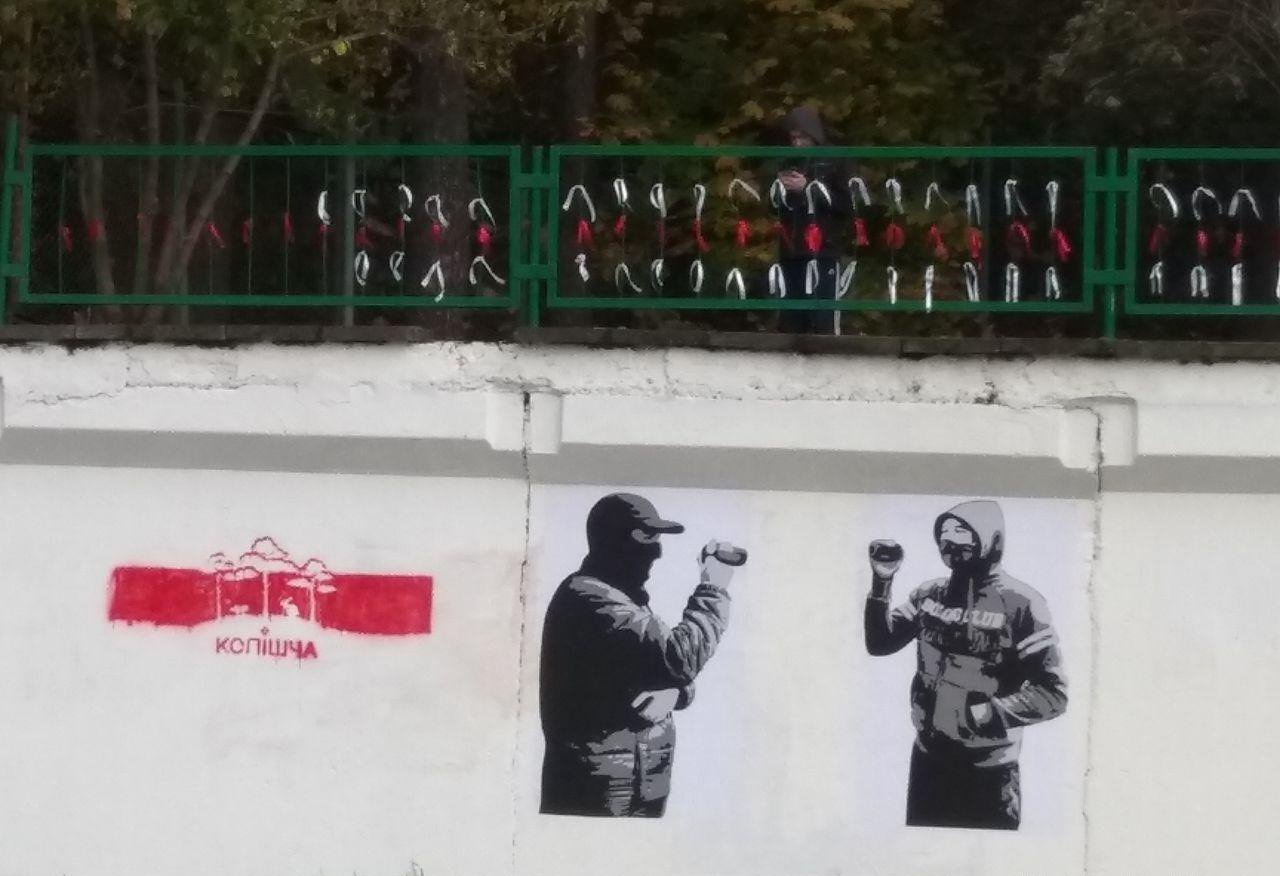
Another example. People in civilian clothes were sent to our tea party. They marked themselves so that the AMAP officers would not touch them during the raid - each had a closed can of beer in his hand. But we do not have alcoholic drinks at yard events, and everyone knows about it. Therefore, these people were then treated with suspicion. And when they also came to the march with cans of beer, everyone already knew from whose trenches they were.
There was a case when disguised policemen were on duty in shifts in our yard for several days in a row. Their task was to track down who is restoring the memorial in honor of the deceased Raman Bandarenka. First, our local precinct policeman was disguised, then his colleagues replaced him, and then a woman was installed, who, by all indications, was not there of her own free will. We assumed that, most likely, she had committed some petty crime and was given a choice: either to go to jail or to monitor our yard and inform the authorities.
The comedy's essence was that all the local guys knew who these people were and why they were there. They watched "tsikhary" from the windows of all entrances. If our person goes to the store or walks the dog, he will also take pictures of them at close range. That is, we have "eyes" everywhere in our area. There was even a proposal to go out and say, guys, go home, you failed. Then, however, we decided, since they want to freeze, let them stand.
"Tsikhary" also are in open courtyard chats. They are trying to track the activity of the courtyards. Especially for them, we write fake information: to drive the security forces or pull their resources away from other points. For example, we create an event, upload photos and videos from three days ago, in which people with flags shout chants or dance in circles. In general, our people are warned and will not go there, but let the "strangers" take a ride.
We know in which apartments in our district police officers and informants live. How does it work? For example, the wife of a policeman came to the clinic to see a doctor; they started talking, and she mentioned that her husband works in the police. Then this doctor comes to the chain and warns everyone. Well, in every house, there is a "nest," which, by virtue of its convictions, looks out for everyone through the window, then calls all authorities, and asks to come and disperse the "protestors." Everyone knows them and avoids them.
Help channels
- Not a single person detained from our area was left alone with financial or domestic problems. When my neighbor was taken away, I took his children to school with my own every day. Other neighbors came with a cake to his wife, gave him moral support so that the person would not be feeling depressed. Our district compensated people for all the days of arrest and fines. For this, we have our own fund.
The practice has already developed that each district is supported by some Belarusian diaspora. Someone from the diaspora has relatives, friends here, or someone came to Belarus and took part in marches. In general, the diaspora decides to support a particular area. Some Minsk districts even have sister districts in Moscow and St. Petersburg. And here and there, they go to rallies, constantly communicate, correspond and help each other. Diasporas collect money, print flags (there is no such possibility in Minsk), pass all this with someone who travels to our country. If there is an urgent need for money, then the courts themselves come to the rescue. I remember we threw a cry, and people came to the chain and collected seven hundred rubles for a neighbor in ten minutes.
I don't want to call it funding channels because no one pays people to participate in yard activities. People go out on their own, take risks; they sit in prison for days. These are help channels. When our pensioners received fines of 800 rubles for participating in the march, which is two or three of their monthly pensions, where will they get such money from? Or when a guy is thrown into jail for two weeks, and he has a wife with two children, how can they live without money? I think it's fair that the district can cover non-working days and fines for people who suffered just for walking peacefully around their neighborhood. Therefore, the Belarusians have support. It is not as centralized as it was in the fall. But it is, and it is quite enough.
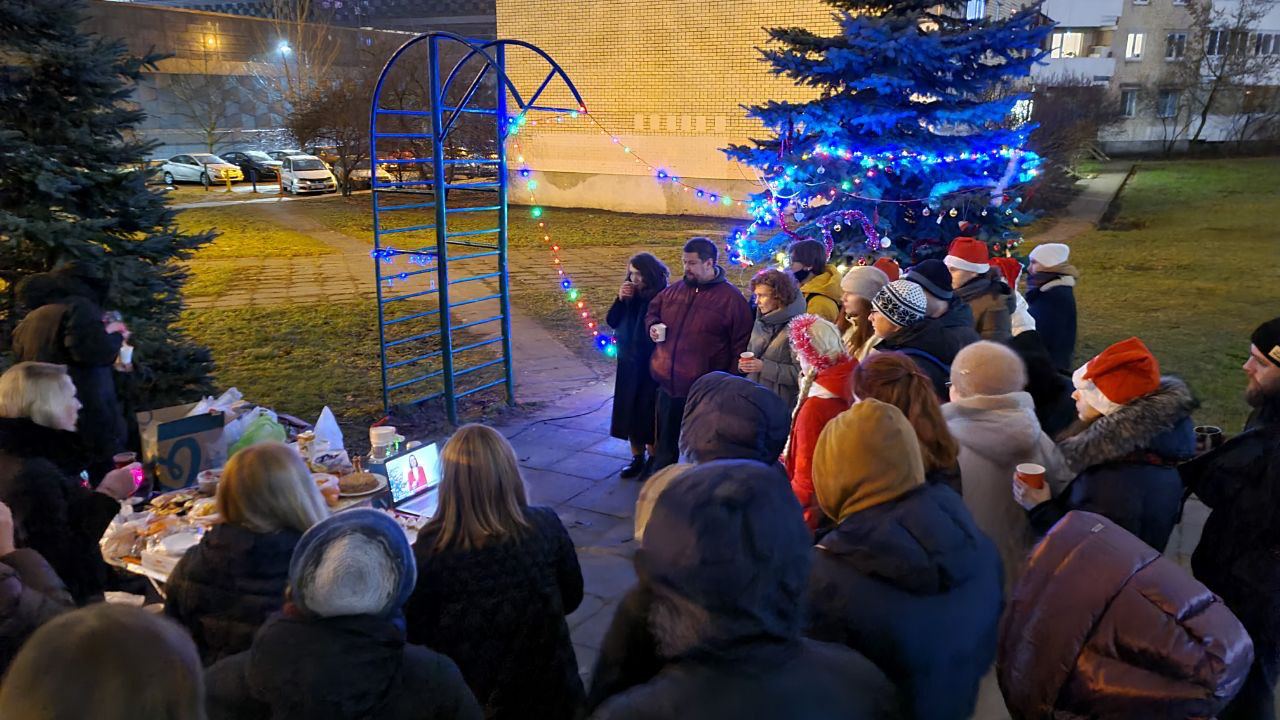
Intelligentsia on bunkers
- We have a tradition: on the Saturday after the release from prison, when the person has washed and slept, we get together. We drink tea, eat cake, and those who have been imprisoned share their impressions.
Now people in prisons are not beaten like in August. For economic reasons, the authorities are afraid to dishonor themselves in the eyes of the world community once again. Therefore, they mock people with more "sparing" methods. People are kept in overcrowded cells; they are forbidden to sit on bunks and on the floor (and where else to sit if there are not enough benches for everyone?). People are kept in cells with broken windows, mattresses are taken away, and they are not taken to the shower. At the same time, the contingent there is intelligent - almost all of them have higher education. Books are "swallowed" in packs, just keep bringing them.
In one cell, a quest in English is drawn right on the table. New guests solved it during the day, tied the answers to the location, and found things useful for them. A rod is hidden in a gap, paper is hidden there, there are crosswords, and so on. The security guards who were "snooping" the camera, due to their education, did not even realize that there was a map on the most prominent place.
Two mathematicians happened to be in another cell, and together they tried to prove some theorem. As a result, all the walls were scratched with mathematical equations and formulas. And you can study the geography of Minsk based on scratches on prison dishes. There Anharskaya says hello to Loshytsa, Uruchcha - Zialiony Luh, Parniki - Sliapianka, and so on.
Our neighbor told a touching story, which can be called "Stirlitz meeting with his wife in a cafe." He and his wife were detained on the march and sent to Zhodzina. After one of the walks, the men were herded into the cells, and the women were just taken out into the yard. And then the husband and wife met their gaze for a couple of seconds, from afar. He will remember this meeting all his life.
In general, people talk a lot in cameras, play board games, joke constantly, and even sing songs. They treat with contempt the fact that they are so mocked, they are placed in such humiliating conditions. And humor helps to survive and not to lose fighting spirit.
How prison doesn't break people
- We go to Zhodzina to meet our people after a day spent in jail. Doors open, and here he comes out. Unshaven, without laces, his jacket is wide open, he carries a bag and an unfinished book with him. 90% of those released walk ten meters and shout: "Long live Belarus!" They all come out with a smile. There is no such thing that a person leaves heartbroken and does not want to communicate with anyone. Attempts by the authorities to break people with days in prison and fines failed. People are in jail two or three times with a week in-between, and all the same, you will soon meet them in courtyard chains and at district marches.
In prison, people solidify even more. For two weeks in the same cell, such connections are built between them, such trust, that they are thick as thieves. Most often, they are from different areas, but before leaving, they share contacts. Then they meet at large and carry out joint activities. They do not need to check each other; they already know who is who.
The state is trying to intimidate people with mass arrests. But it works against him. The more people are imprisoned, the more their hatred and the stronger their ties are. It's like a pot of boiling water. When it boils, steam comes out. Someone got burned and closed it with a lid. The lid bounces anyway - steam comes out. He begins to tighten the nuts around the edges of the lid. What will happen next? It is clear that it will jump in five minutes so that everything will be in this steam and water. You can't close it like that.
The situation now looks exactly like this. Everybody sees it. It needs to be addressed. The decision cannot be constantly postponed. They drove people into the yards, then on the bunks, so what? The problem has not disappeared from this.
What will happen to the protest next?
- Now, the trend is definitely towards unification. We scattered into courtyards, then became districts, now three or four districts are united and conduct marches of 300-400 people. There are more sentinels, more communication between district leaders. People come together on a mobile call in closed chats.
It is clear that it will soon get warmer; there will be no need to freeze and slide on the ice. Daylight hours are increasing. The wave of coronavirus will subside because many do not go out because of it. I think there will be consolidation. Everyone assumes that, by the spring, the protest will again become intense.
I read chats, and I see the mood of people on the chains. Everybody wants big marches. Everyone wants to feel the big shoulder again. But it will be a completely different story because then people came out unfamiliar with each other. They traveled alone or in pairs to the center. They were united by a common idea, but not by acquaintance, trust, or friendship up to devotion. The fact that we were herded into the courtyards gave us a great experience. We have learned to trust our neighbors, and we know who walks in front and behind. We know that if we have agreed to react somehow, then we will react that way. The backbone has already been formed. This backbone knows the backbone of the neighboring district. We trust each other so much that we can get into a chain or move away somewhere together, instantly disperse and just as instantly get together. This is a completely different level of organization. It will be a completely different protest.
